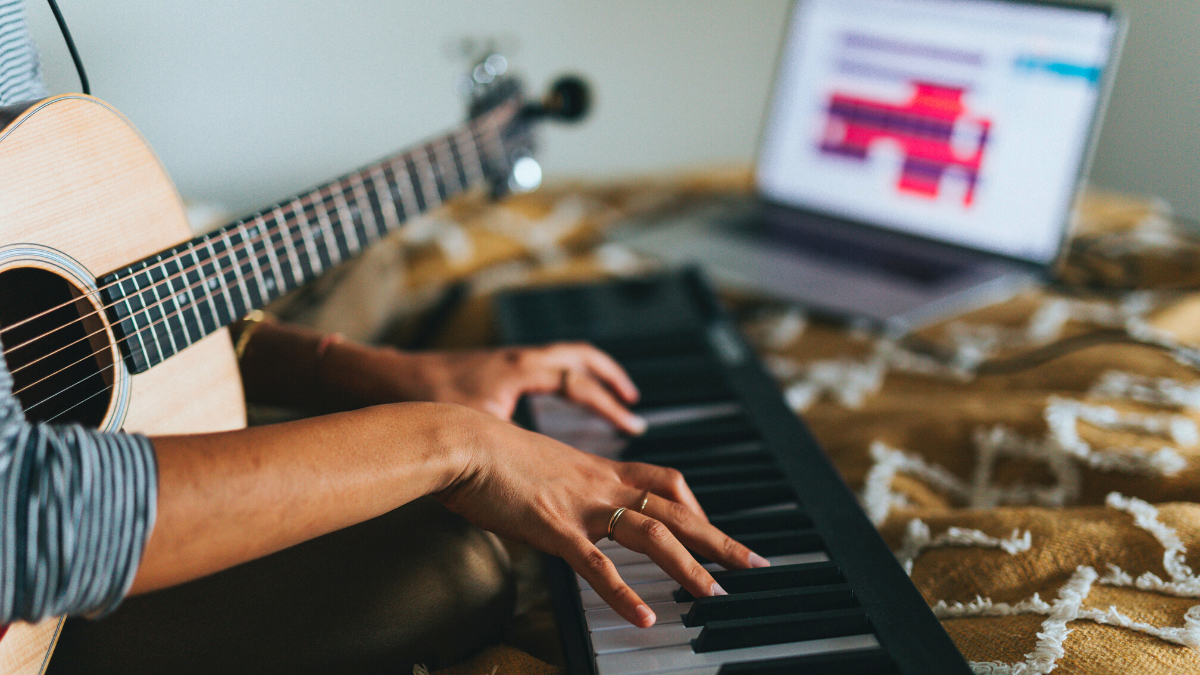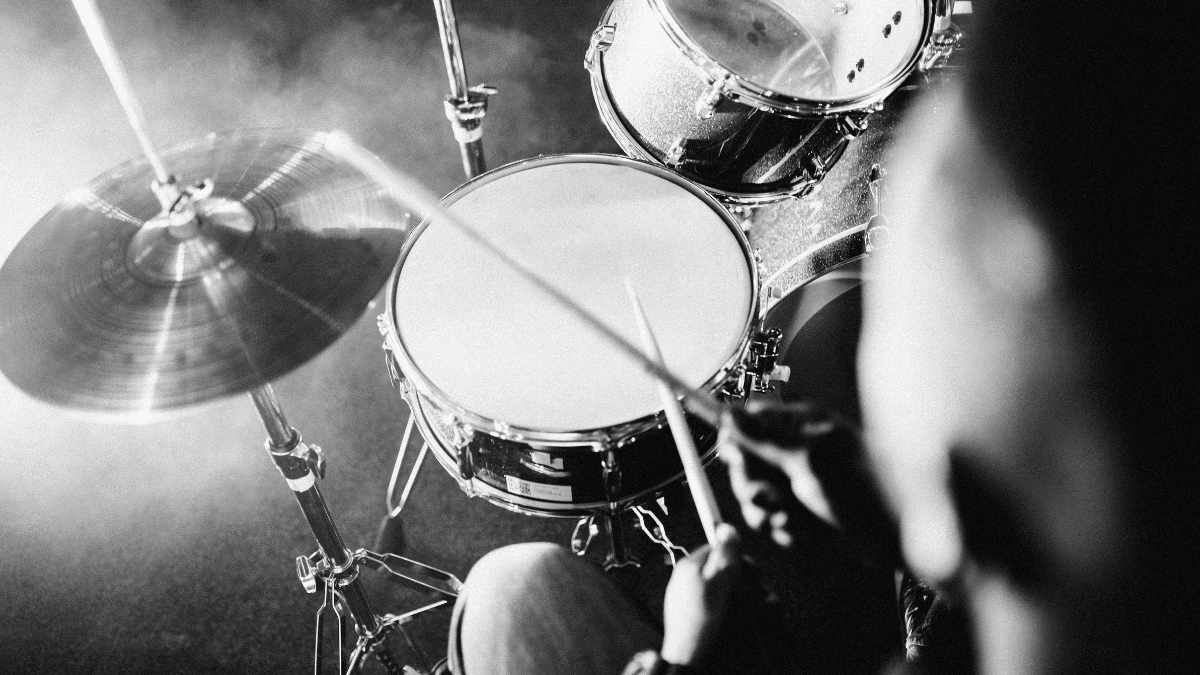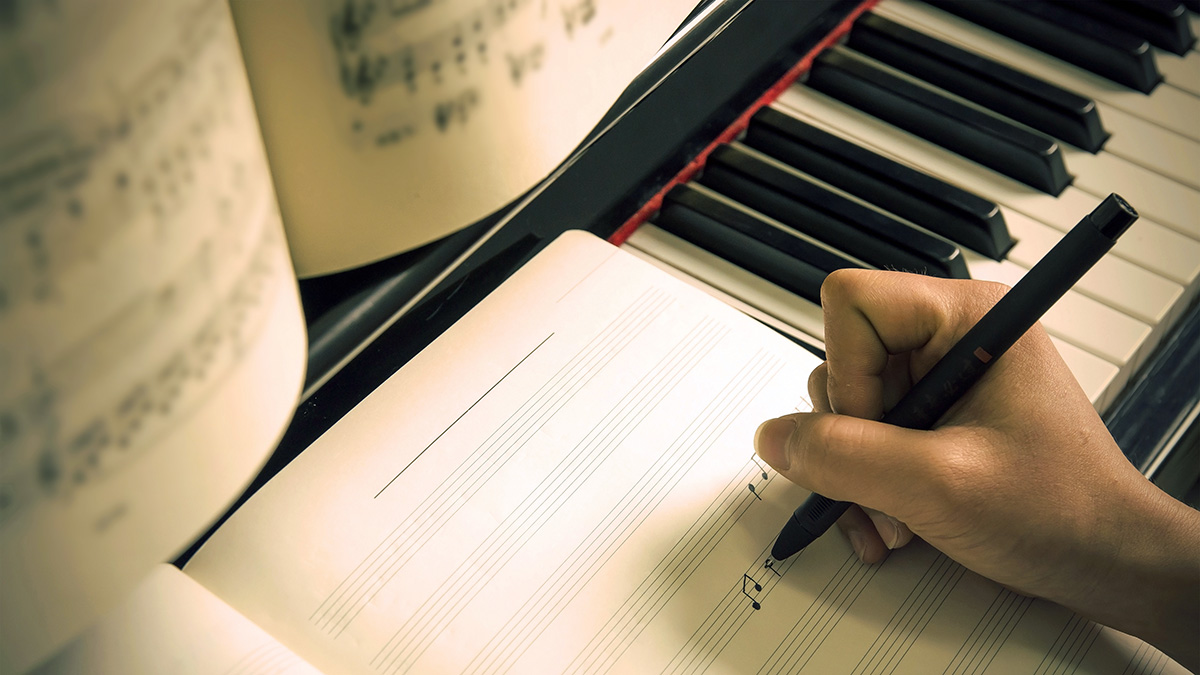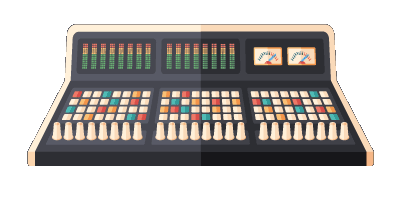6 Ways Using a DAW Can Help Your Songwriting Process

The digital audio workstation or DAW has become synonymous with songwriting and production in recent years. Gone are the days of sitting down at the piano and fleshing out an entire song with pen and manuscript paper, to be arranged and produced later.
As more and more musicians and writers develop greater technological skills, it isn't uncommon for a laptop and DAW to be an integral part of the writing process itself. In fact, a computer is now oftentimes the first 'instrument' we begin to create with. Let's look at six ways using a DAW can help in our songwriting process.
1. MIDI is Amazing
MIDI is a great way to create an approximation of how our song may sound later, especially when it comes to programming drum parts. Traditionally, the percussive and harmonic elements of the composition were delegated to the 'arranger' and were not considered part of the 'writing' process (hence why drummers have always been hard up for writing credits and royalties). Do we still work this way? Absolutely not.
With the rise of EDM, the hip-hop revolution and bedroom production; drum programming, sampling and beat making have become as much a part of 'writing' music as the melody and lyric.
The best part about MIDI is how flexible it is. Using software and samplers in our DAW, we are able to configure our MIDI parts in a variety of ways. We may want to change sounds later in our production process or move a part from strings to synth. Not only does working with MIDI inside our DAW afford us this flexibility, it gives us the ability to export that MIDI and send it to our collaborators during the production stage of our creative process. We can even export MIDI as notation to be recorded by live musicians later. Writing with MIDI makes our flow more efficient, and carves out more space for our creative process to flourish.
2. Dump Voice Memos
Recording ideas straight into our DAW saves time and expedites the creative process. Think about the amount of time and effort it takes to develop an idea, record a voice memo then later re-record that idea as we demo the song, only to be re-recorded AGAIN during the production process.
I often record my melodic ideas, variations on chord progressions, and lyrical ideas directly into Logic or ProTools. Using playlists on a single track created by the 'duplicate' feature in many DAWs, we can record multiple takes of the same idea, comp and edit those ideas, or record several options and save them for later.
Oftentimes, these recordings actually end up in my final mix. Don't work when you don't have to!
3. It Keeps Us Accountable
Creating a project in ProTools, Logic or Ableton is a commitment to our work. When we start a new session and put the work into creating a demo as we go, we are much more apt to revisit those sessions and complete them later. We are less likely to scrub through our voice memos or thumb through a notebook, piecing together fragments of songs we've half-written, or long forgotten we had.
I write nearly every day, and I begin all of my sessions by creating a new project by date, recording as many of my ideas as possible, and saving it for later. Every couple of weeks I'll go through my sessions in order, listen to my work, and choose which songs to complete. Having everything in one place, with some degree of quality, makes it easier for us to see the big picture and commit to finishing our ideas.
4. It's a Utility
DAWs are rich in features that aid in our creativity and serve as a utility in our writing process. Things like setting and changing tempo, FlexTime/Elastic Audio, and looping are indispensable tools for the modern creative. The ability to record a chord progression and easily loop it as you compose the melody or write lyrics is a huge asset. Not to mention the ability to change keys and try out different tempos.
5. It's Rewarding
If we're anything like most people, we enjoy the reward of hard work. Watching a song come to life as we write in a DAW is satisfying, and gives us some pride in our work as we hear it develop. My favorite part after a long session is bouncing the demo and running out to the car to drive around the block and listen.
It's our brain's reward system doing what it does best. I can't think of many other jobs where I'd willingly sink my blood, sweat and tears into something, only to go home empty handed. Considering as writers, we are making something out of nothing, it's nice to have something to show for the time we put in. Creating a folder or playlist of MP3s in your Dropbox or Soundcloud as we go is a great way to keep track of our ideas, share with others, and vibe out our progress as we work on each project, further motivating us to keep writing.
6. It's a Business Asset
The demand for technologically sharp creatives has skyrocketed so much in recent years that the Nashville writing community has coined the term 'writer/producer' to describe a songwriter that also produces music, and pays them accordingly.
To understand the significance of this, we need a bit of backstory. Like I mentioned earlier, the creative process was less streamlined in years past. In the days of big budgets and even bigger studios, different formal positions for writers, arrangers, producers etc. were much more specific. Even as many musicians evolve into jacks and jills of all trades, this mentality continues to permeate many sectors of the music industry outside of pop and hip-hop. It isn't uncommon to have a strict 'writing' session in the country, theater or cinematic worlds and schedule a demo or 'production' session for later. This is changing as labels seek to budget more efficiently, and evolve to meet the demand for quality product the digital revolution has created.
Becoming a one stop shop for writing and production is an asset. It increases our value, our employability and the scope of work that is available to us.
Still here? Glad you made it to the end of the article, now create a new session and get writing already!



Comments:
Apr 05, 2022
Mar 11, 2022
Mar 10, 2022
Login to comment on this post